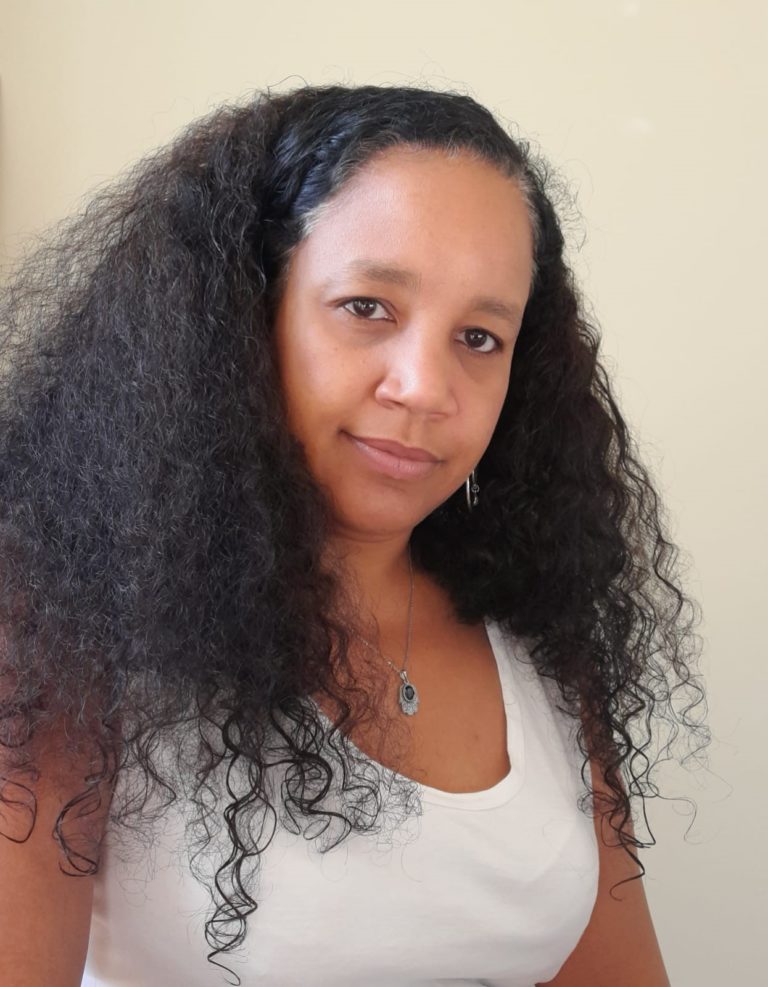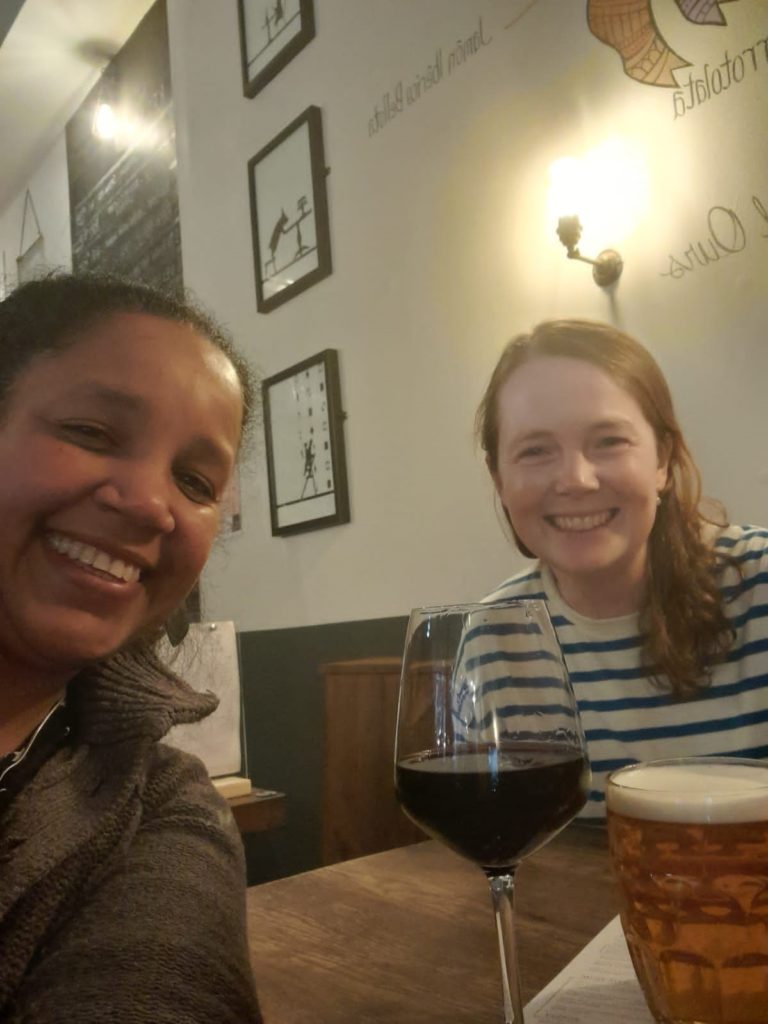Yoselin Benitez-Alfonso

Background
The global Women in Crop Science community (https://womenincropscience.org/) aims to raise awareness of female leaders in the crop science community and to showcase their scientific and community contributions. I was inspired to interview Yoselin Benitez-Alfonso as part of the “Women in Crop Science Conversations” interview series because of her inspiring research as well as her passion for supporting diversity and equity in science (and beyond). Yoselin is an Associate Professor in Plant Sciences as well as a UKRI Future Leaders Fellow at The University of Leeds in the UK. She leads a team of postdocs, students and visiting scientists working to uncover the mechanisms of plant response to stress. I first met Yoselin a few years ago when I visited The University of Leeds and we have continued to interact regularly both scientifically and as peer mentors. In 2023 Yoselin, along with Nicola Patron (The Earlham Institute) and Steven Spoel (University of Edinburgh) launched the Black in Plant Science UK Network (https://blackinplantscience.org/). This aims to connect, celebrate, and cultivate a community of black plant scientists in the UK. The creation of this network is very much driven by Yoselin’s passionate advocacy for race (as well as gender) equity and for diversifying plant sciences.
Briefly describe what you do?
I work on plant cell walls and communication (mainly via plasmodesmata) with the aim of uncovering mechanisms behind signaling in plant responses to the environment. My work is cross-boundary, encompassing plant biology, physical and material sciences, and computational modelling. You can find out more about the work of the lab here: https://benitezalfonsolab.leeds.ac.uk/
Why did you get into research, and crop science in particular?
I was attracted to research because of an inherent curiosity for discovering new fundamentals of how living things work. This curiosity was inspired by my father who is a medical doctor with an interest in research. In my early life in Cuba, the field of chemistry was most intriguing to me and during my high school years I was selected to represent Cuba in the International Olympiad for Chemistry (having won the national bronze medal in the Cuban Olympiad). I went on to study Chemistry at the University of Havana in Cuba for two years. In the wake of the Cuban uprising, I completed my undergraduate studies in Chemistry at The University of Cordoba in Spain where I fell in love with the science of biochemistry. I won a scholarship to complete my PhD at The University of Cordoba in molecular biology and biochemistry studying olive tree interactions with a biotroph pathogen. My PhD research uncovered molecular response mechanisms using a range of methods and showed differential genotypic responses to pathogens.
Rapid Fire Questions
Lab or field?
Lab, hands down.
Conference or stakeholder meeting?
Conference (especially the wine and cheese).
Literature review or project report?
Neither, research paper.
Conventional or molecular methods?
Molecular.
Hybrid, inbred or vegetative?
Inbred (because populations help to unlock molecular components).
Qualitative or quantitative research?
Quantitative (although for some purposes qualitative).
Genstat or R?
R.
Favorite crop & why?
Chickpeas (or any other legume), because of their resilience and capacity to form symbiotic relationships. There is a beautiful complexity to how they recognize friend and foe. I also admire the production and nutritional potential of tomatoes and strawberries.
What do you love most about your job?
I love the freedom to ask new questions and to design new approaches to answer those questions.
Any major hurdles?
Scientific writing hasn’t come easily to me. But, as with many things, the more you do, the better you get.
What is your dream to achieve in your field of expertise?
Arriving at a proper circular biology: discovering something that can improve food but also create biomaterials and products that then enrich the soil and improve sustainability.
What is your favorite aspect of your research?
The research itself. As an academic there are lots of demands on your time, which means that the time for “real” research is extremely precious.
What would make your research and crop science experience even better?
Unlimited funding! Plus, fewer tasks that need to be fulfilled. I also dream of a more diverse environment in which it is possible for us all to bring our individual characteristics, skills, personal values, and cultural contexts into our work.
What is the best career decision you ever made and why?
Interviewing for my current position at Leeds. I was looking for another post-doctoral position at the time but took the plunge to put myself forward for a Lecturer position and to take the brave leap into starting my own research group.
Beach or mountain?
Beach.
Tea or coffee?
Coffee.
Appetizer or dessert?
Appetizer.
Instagram or Twitter?
Twitter (follow Yoselin @benitez_lab and @YoselinBenAlf).
Fame or fortune?
Fame (for the work I produce, not for who I am).
Final word by Alison Bentley
I love interacting with Yoselin because of her infectious positivity, energy, and passion for changing the world for the better. Although I’ve known her for several years this interview was the first time I learnt about her undergraduate days studying Chemistry in Havana and relocating to Spain during an extremely unstable period in Cuba’s history. Yoselin’s science has always impressed me (although to be honest sometimes the details about the precise functions of the plasmodesmata completely confuse me) because she applies some of the most fundamental plant science principles to address big questions relating to stress response, development of biomaterials and achieving circular biological systems. Her passion and advocacy for greater race and gender equity and representation in science is a huge part of who she is as a person, as is her commitment to making positive change. The new Black in Plant Science UK Network is just one example of this, and I know this will be an important forum for creating connections and raising awareness. The Women in Crop Science Network aims to be a strong ally and to work together with this and other community networks to champion greater diversity, inclusion and equity in plant and crop sciences globally.

Learn more about the Black in Plant Science UK Network here: https://blackinplantscience.org/
